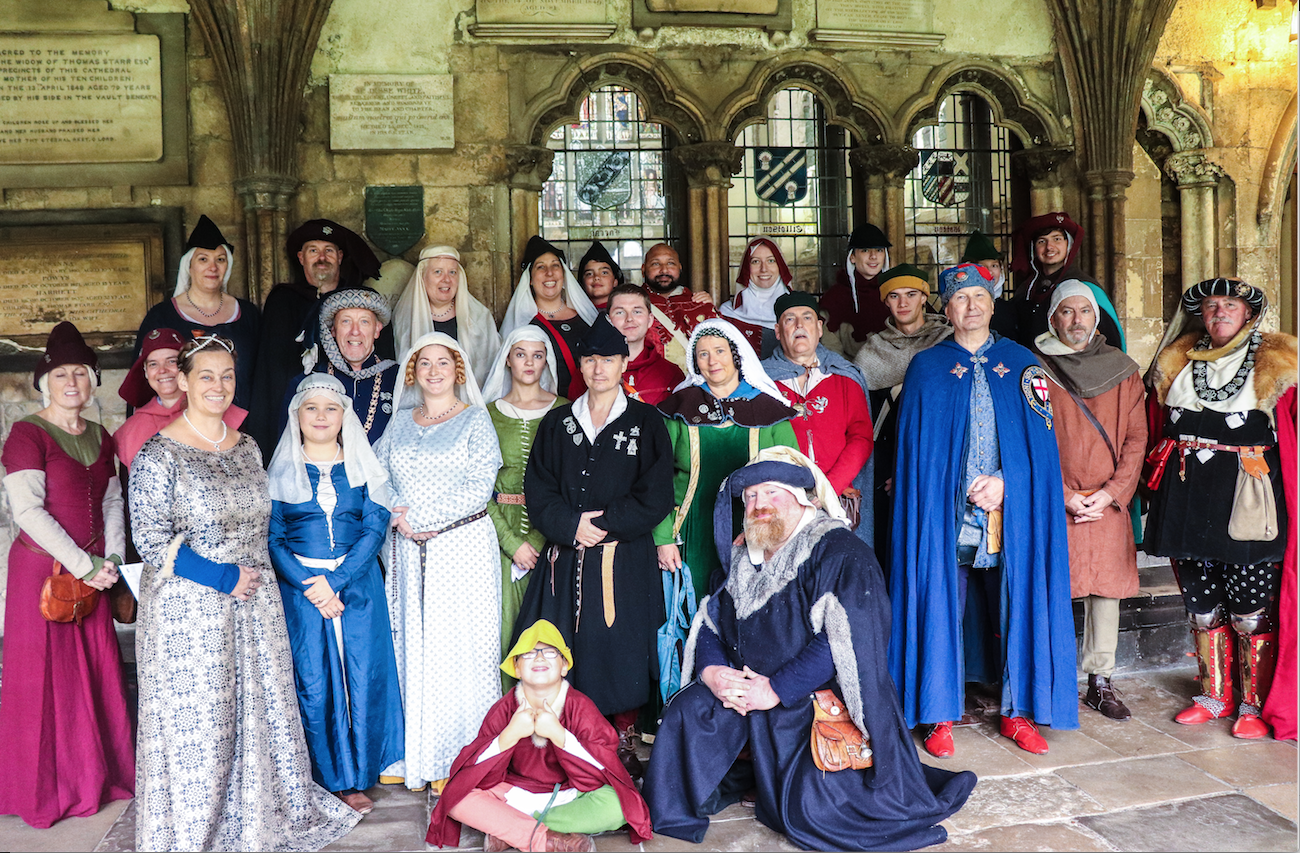
Vice-Chamberlain of England, Lieutenant of France, Viscount of Saint-Sauveur
Hailing from Derbyshire, Chandos was a close friend of Edward, the Black Prince and a founding member of the Order of the Garter. Unlike most commanders of the day, Chandos was not of noble birth. As a veteran, Chandos was one of the commanders who led the sixteen-year old Edward’s troops to victory at the Battle of Crécy. As Edward’s Chief of Staff, he designed the strategy that won victory at the Battle of Poitiers in 1356 thus having a pivitol role in two of the most famous battles of the Hundred Years War.
On September 29, 1364, Chandos led the forces of Duke John de Montfort to victory at the Battle of Auray, winning the Breton War of Succession and enabling de Montfort to become John V, Duke of Brittany.
In reward for his service, Chandos was created the lieutenant of France, the vice-chamberlain of England and was given the viscounty of Saint-Sauveur in Cotentin. During the Hundred Years’ War, he became constable of Aquitaine and seneschal of Poitou. Later, however, after disagreeing with Edward over how the Guyennois should be taxed, he retired to his property in Normandy.
In 1369, the French launched a successful counterattack, regaining much territory and forcing Edward to recall Chandos.
He was killed after a night skirmish at Lussac in Poitou, and died at the castle of Morthemer on December 31, ending the career of one of the foremost knights of the 14th Century.
His passing was mourned on both sides; In his book, “A Brief History of The Hundred Years’ War” Desmond Seward states that Charles V of France (“Charles the Wise”) is reported to have said that “had Chandos lived, he would have found a way of making a lasting peace”, but Froisart is more circumspect claiming “Not but that I have heard him at the time regretted by renowned knights in France; for they said it was a great pity he was slain, and that, if he could have been taken prisoner, he was so wise and full of devices, he would have found some means of establishing a peace between France and England
